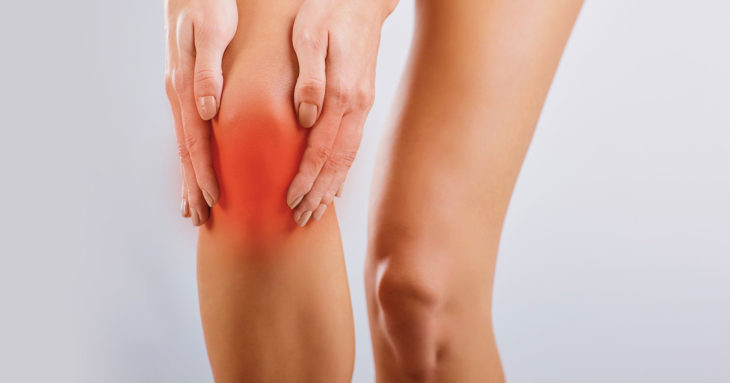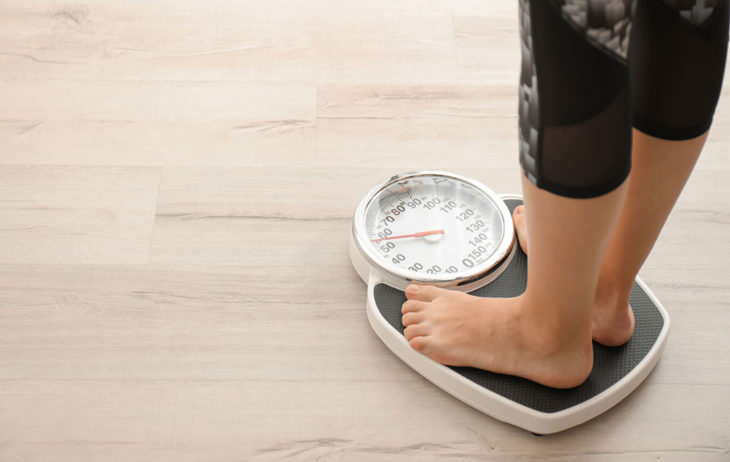Sitting in the sports medicine clinic’s waiting room, I poked at my knee and winced, hoping that the doctor would be able to fix my troubled joints so I could run my first road race the following month. Half an hour later, I had my answer: my biomechanics were off, I suffered from the common patella-femoral syndrome, but with physiotherapy and diligence, I’d still be able to run.
An acceptable prognosis, so I smiled. I liked the doctor; how she paid attention to my grimaces as she prodded my leg, and explained all the anatomical terms to me as she discussed my diagnosis with the observing resident. And then it happened.

Source: Institut de Kinésithérapie Paris
“Could you turn onto your side, Sara?” the doctor asked as I lay on the examination table.
I obediently flipped over.
“No, a little closer to me.”
I shuffled backwards, mumbling apologies.
“It’s not a big deal,” she smiled. “You’re so tiny.”
I blinked. And a minute later, when I was lying on my back again, she turned to the resident and pointed out something about my “tiny” patella. I blinked again.
Tiny is an odd word to describe me. I’m pretty average, standing tall at a little over 5’5″, and while running off and on for seven years has toned my calf muscles, my reluctance to do all other exercise has left me with no core strength whatsoever. I’m not tiny. Tiny is a newborn puppy, or a kindergarten child, or, my 5’0″ mother who weighed 90 pounds on her wedding day. I haven’t weighed 90 pounds since middle school.
Objectively, I know I’m not tiny, but I took the adjective as a compliment, and maybe the doctor intended it to be one. Maybe it’s good thing that I don’t take up an entire examination table, that my kneecaps aren’t massive. And so I smiled, absurdly proud at the tiny title. It was the same feeling I got when I ordered a size large dress online, and it was slightly too big for me, or when a pair of shorts I bought five years ago still fit. I want to be considered tiny, I fear being large. But I’m incensed with myself for caring so much about adjectives.

Source: ФрутоНяня
I started weighing myself daily, even stopping by friends’ houses to use their scales at lunchtime, in 11th grade, the year I rowed crew. I dreaded seeing the scale tip over 125 pounds because that would bump me — and my boat — up into the “heavyweight” category, putting us at a disadvantage as we raced. The “keep your weight down” mentality was rampant in the rowing community; one girl practiced in a shirt that read “Don’t Feed the Lightweights,” and we were reminded to use the washroom before the weight-checks at each race.
Every last pound counted. Of course, crew isn’t solely responsible for my love/hate relationship with the scale. It was uncomfortable not being able to fit into my mother’s wedding dress at age 12, but my father’s sturdy Ashkenazi peasant genes have enabled me to hold my liquor better than my Chinese mum, while also depriving me of her baby bird bone structure. Nevertheless, it was after my year-long crew career that I resolved to stop weighing myself. I felt it had become an unhealthy obsession with too many highs and lows.
I’m tempted to give in sometimes still, to see if the scale in my mother’s bathroom will praise or admonish me, but I know that if I succumb, it’ll take weeks for me to kick the habit once again, and I don’t want to re-experience the euphoria of one pound lost or the misery of two gained.
And so, whenever I’m home from university, I carefully avoid the corner of the bathroom that houses the scale. I run and swim when it’s nice out, but sit like a lump all winter. I spend most of my grocery money on vegetables, but just ate half a bag of chocolate chips while flipping through magazines. I am perfectly satisfied with the healthfulness of my lifestyle, and have no desire to know how much I weigh. But the desire for approval about my size, body and height/weight ratio has not gone away, and now that I no longer receive self-validation from the scale, it’s difficult to resist doing so from other people’s adjectives.
Original by Sara Tatelman
